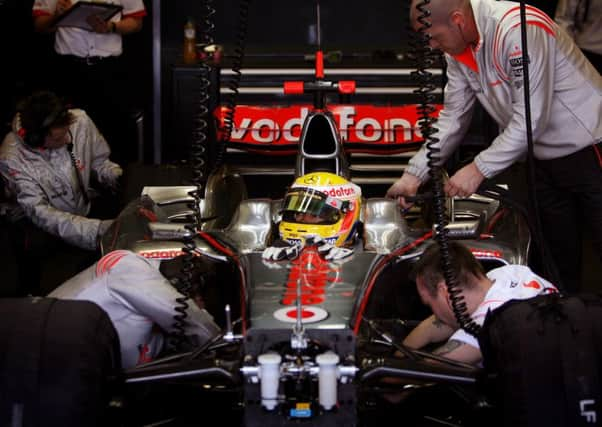Putting pit lane lessons to work in the boardroom
This article contains affiliate links. We may earn a small commission on items purchased through this article, but that does not affect our editorial judgement.


Marc Priestley, who spent almost a decade with McLaren and helped Lewis Hamilton to his first world championship title in 2008, argued that firms can gain an advantage from the lessons he learned in the pit lane.
“About ten years ago, Formula One collected huge amounts of data but didn’t really use it in a predictive or proactive sense – we used it in a very reactive way, so if there was an issue with a car we’d look at the data to find out what had happened,” Priestley said on a visit to Edinburgh to take part in an event organised by Data Lab, Scotland’s publicly-funded innovation centre for data science.
Advertisement
Hide AdAdvertisement
Hide AdHe told The Scotsman: “It was my team at McLaren that started the ball rolling by using data to help make strategic decisions and improve things like pit stops, transforming them into the two-second events they are today.”
Priestley, who left McLaren in 2009 and is now part of the Sky Sports F1 presenting team, drew parallels with British Cycling, which enjoyed huge success on the track and road under the “marginal gains” philosophy introduced by former performance director Sir Dave Brailsford, now principal at Team Sky.
“You’re working at such fine margins now that you have to look at things in this scientific manner that we never used to do,” he said. “Data science and sports science suddenly became a major differentiator in performance.”
Despite the rise of “big data”, Priestley said many people remain to be convinced of the benefits organisations can gain from tapping into the massive amounts of information they are collecting every day.
He added: “There is value in using this data. Lots of traditionalists don’t see the value in having a data science department, for example, and they still need to be convinced on that. But it can be something that sets you aside from the competition.
“When we went through our own period of change at McLaren, there was lots of resistance from within the team, but it really did work and made the difference between winning and losing.”
In terms of this year’s championship, Priestly said the odds are “heavily stacked” in favour of Nico Rosberg, who has a 19-point lead over Mercedes teammate Hamilton with just two races left.
“However, as we’ve seen all season, there have been a number of twists and turns with reliability issues. Nico only needs one of those for it to be wide open again, but he can win the championship next weekend in Brazil.”